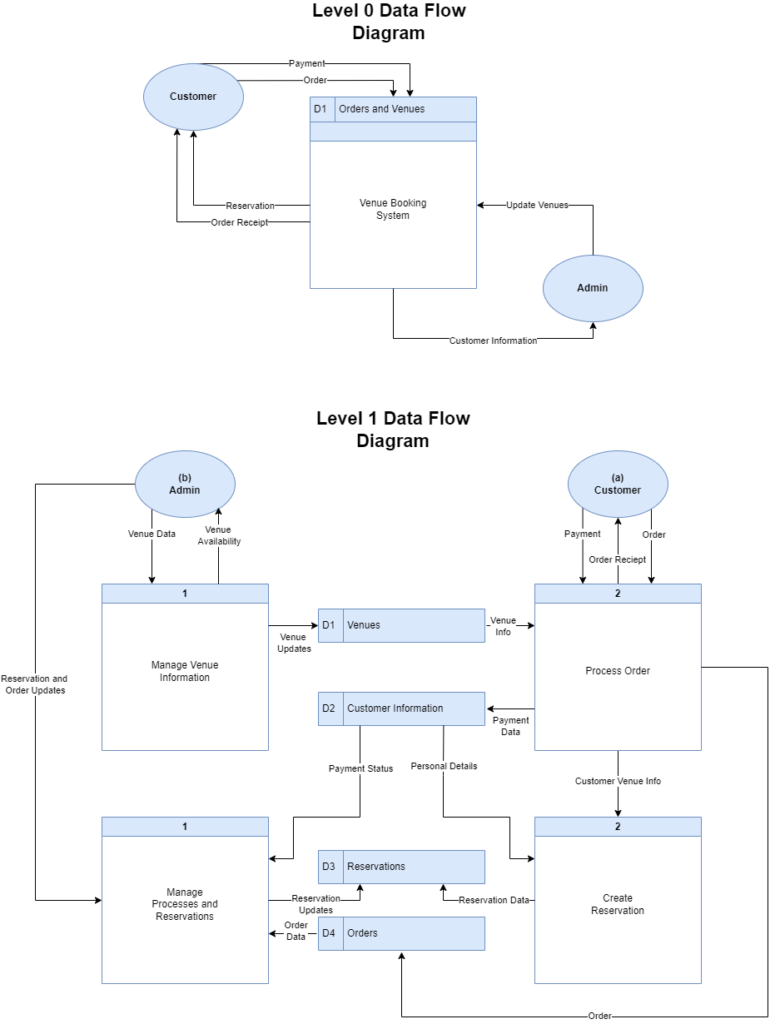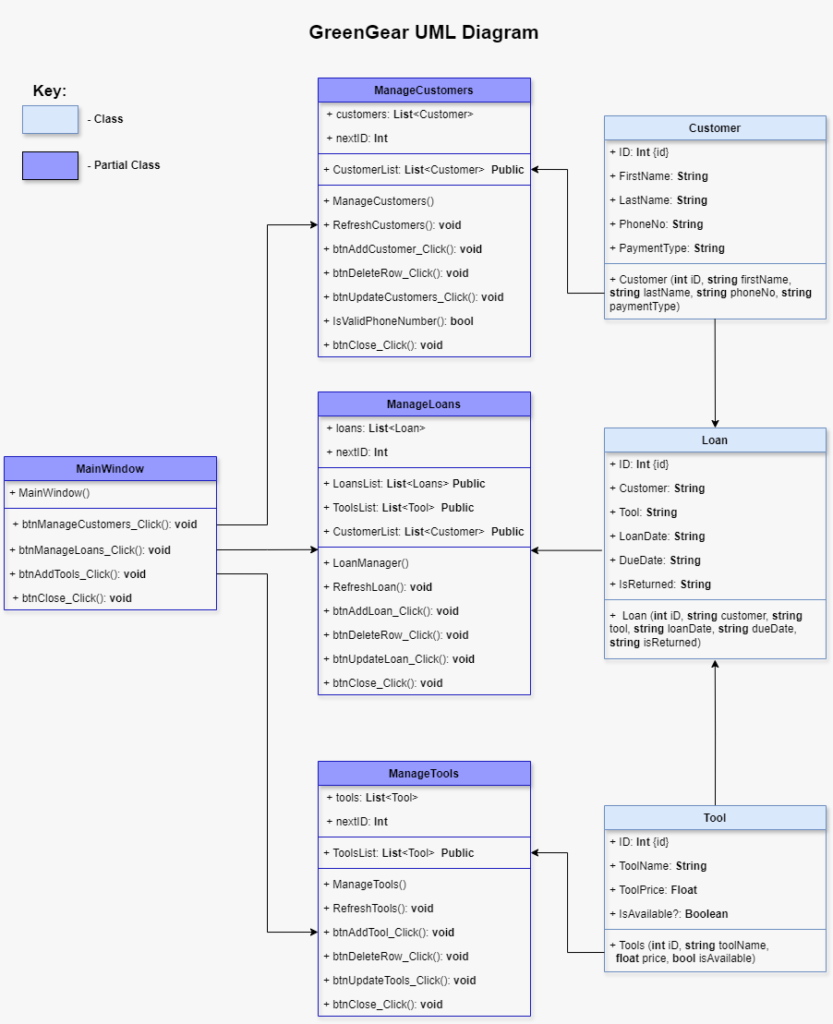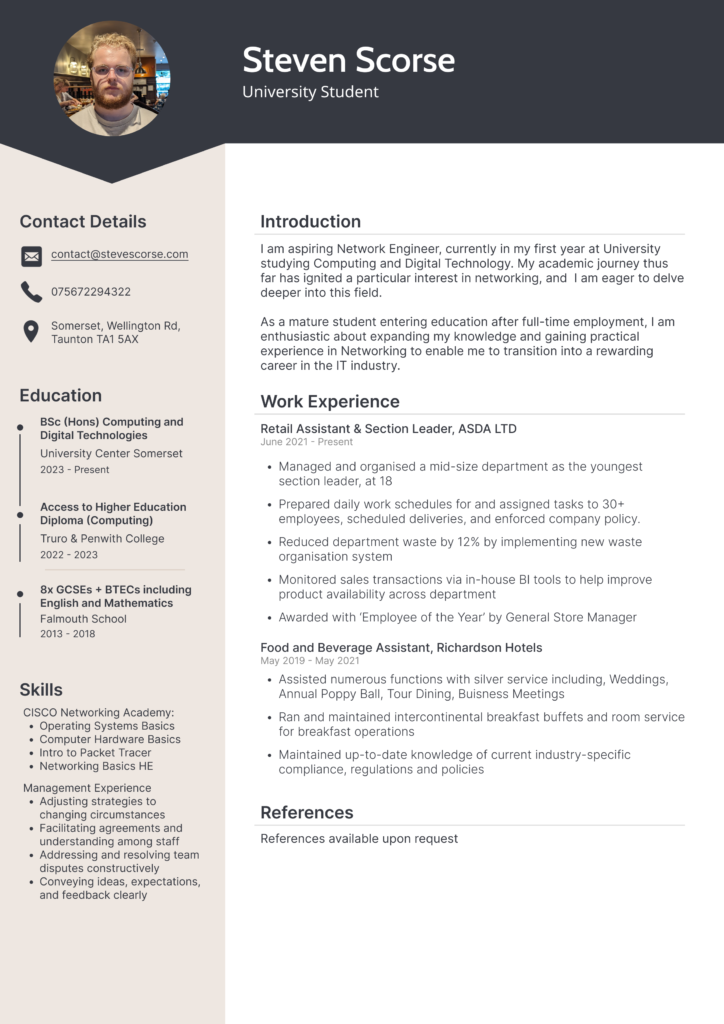Welcome to my Development Journal, a weekly chronicle of my journey through the first year of study. Here, I document the progression of my skills, assignments, and experiences, providing insights into my learning process and growth.
Week 1 – 18/09/23
This week marked the beginning of my university journey with an induction that introduced me to resources at the LRC. I learned how to access the library’s digital and physical collections, navigate the student portal and online learning platform, and utilise IT services for software and technical support (Had to go to IT support on my first day lol). While I feel more confident now, I recognise the need to further explore these tools to maximise their benefits. My goal is to become proficient in using these resources to enhance my academic experience.
Week 2 – 25/09/23
This week, I was introduced to Harvard referencing and the fundamentals of report structuring. Learning to properly cite sources using Harvard referencing is crucial for academic integrity and avoiding plagiarism. Additionally, understanding how to structure a report with a clear introduction, body, and conclusion will help in organising my ideas and presenting them coherently. While I grasp the basics, I need to practice applying these skills in my assignments to ensure accuracy and consistency. My goal is to become skilled in referencing and report writing to produce high-quality academic work.
Week 3 – 2/10/23
This week, I was introduced to the Programming and Software Fundamentals module, covering key areas such as software development methodologies, analysis and design, testing strategies, and documentation. We also reviewed the module’s reading list, which will be essential for deepening my understanding of these topics. I need to focus on mastering each area through practice and further reading. My goal is to build a solid foundation in these fundamentals to support my growth as a software developer and to support my next year.
Week 4 – 9/10/23
This week in the Web Application Development module, we delved into website analysis, performance analysis using Google Lighthouse, and key design principles. Learning to use Google Lighthouse has equipped me with the skills to evaluate website performance, identifying areas for improvement in speed, accessibility, and SEO (Link to my notes). Additionally, understanding fundamental design principles will help in creating user-friendly and aesthetically pleasing websites. While I have gained a good grasp of these concepts, I need to practice applying them to real-world projects. My goal is to refine my analysis and design skills to build a well-designed website for a later assignment.
Week 5 – 16/10/23
This week, I received my first assignment for the Networking and Cyber Security module. To tackle it effectively, I created a detailed plan outlining the required resources, including the Packet Tracer model and necessary documentation. I will extensively use Cisco’s “Skills for All” resources to enhance my understanding and proficiency in networking concepts. Leveraging these materials will be crucial in mastering the assignment tasks. My focus will be on methodically working through each part of the assignment to ensure a comprehensive and well-documented submission.
Week 6 – 30/10/23
This week in the Data and Database Principles module, we focused on relational databases, learning about entities, attributes, primary and foreign keys, and different types of relationships. Understanding these fundamental concepts is crucial for organising and managing data effectively. I now grasp how entities and attributes form the building blocks of databases and how primary and foreign keys establish relationships between tables. Moving forward, I need to practice designing and implementing relational databases to solidify my knowledge. My goal is to become proficient in database management to help with my second assignment.
Week 7 – 6/11/23
This week, I received my first assignment for the Web Application Development module: redesigning the website for a local business, Glowing Grates. The task involves analysing the current website, critiquing its design and functionality, and suggesting improvements for a more user-friendly and visually appealing experience. To suggest improvements, I’ll need to propose design changes, content revisions, and potentially introduce new features to enhance usability and engagement. My goal is to create an enaging presentation whilst applying the knowledge from lectures to my work.
Link to Plan (https://www.evernote.com/shard/s491/sh/fe06626f-3a50-cd0a-c7c4-57e88029ab8e/Kxow6M6pd3XL13H4nQi_nMuVjJqsuBp_dStYpV00cwuJKyE7fi8tLJHG3w)
Week 8 – 13/11/23
This week in the Programming Fundamentals module, we focused on learning about different types of loops. We explored for loops, while loops, and do-while loops, understanding how each operates and their specific use cases. Understanding these loops is important for controlling the flow of a program and handling repetitive tasks. Moving forward, I plan to practice implementing these loops in various coding exercises to reinforce my understanding and improve my programming skills.
Week 9 – 20/11/23
This week, I made significant progress on the Networking “Skills for All” program, focusing on different communication protocols and network communication models. I delved into protocols such as TCP/IP, HTTP, and FTP, understanding their roles in facilitating data transfer across networks. Additionally, I studied network communication models, including the OSI and TCP/IP models, which provide frameworks for understanding how data is transmitted and received. To solidify this knowledge, I will continue exploring practical applications and real-world scenarios involving these protocols and models.
Link to Notes (https://www.evernote.com/shard/s491/sh/24932111-b3a3-e004-33fa-683f5168b5fc/GXmo6Eq9NZ3ljNhsN8e07WHE0TYUIk_FrhbUmTGd50t5cI0roX4Glmz9-g)
Week 10 – 27/11/23
This week, we delved into database security, covering essential aspects such as physical security, database encryption, authentication and authorisation, and data ethics. Understanding physical security measures helps protect database hardware from unauthorised access. Learning about database encryption techniques is crucial for safeguarding data at rest and in transit. Authentication and authorisation practices ensure that only authorised users can access and manipulate data. Lastly, we explored data ethics, emphasising the importance of responsible data handling and privacy. Moving forward, I aim to apply these security principles to ensure robust protection of database systems when I work on my second Databases assignment.
Week 11 – 4/12/23
This week in the Web Development module, I focused on enhancing accessibility by implementing a local “Dark Mode” feature using JavaScript. This involved creating scripts to toggle between light and dark themes, improving user experience for those who prefer or require different visual settings. By adding this feature, I not only made the website more inclusive but also gained practical experience in using JavaScript to manipulate the DOM and store user preferences locally. Moving forward, I plan to explore additional accessibility features to further enhance a website’s usability – specifically for the next assignment.
Week 12 – 11/12/23
This week, I received the second Networking assignment, which focuses on addressing and requires a solid understanding of DHCP (Dynamic Host Configuration Protocol). I utilised Cisco’s “Skills for All” resources to deepen my knowledge of DHCP, learning how it dynamically assigns IP addresses to devices on a network, ensuring efficient and automated management of IP addresses. This understanding is crucial for completing the assignment, as it involves configuring and troubleshooting DHCP within network setups. Moving forward, I will continue leveraging these resources to enhance my practical skills in network addressing and management.
Link to Notes (https://www.evernote.com/shard/s491/sh/ea2ba21d-f1fc-d267-33d5-38948bfa3996/z6jzFZq3ibpuLnI99PidbjSFjwIj8mSdh0eUvgDSLPxIjDtCMeQsY3TlPg)
Week 13 – 1/1/24
This week, the first Professional Practice assignment was released, requiring a written report on different software development models. In this report, I will need to explore various models such as Waterfall, Agile, Scrum, and DevOps, analysing their methodologies, advantages, and drawbacks. Understanding these models is important for selecting the correct approach for different projects and ensuring efficient and effective software development. As I research and write this report, I aim to develop a comprehensive understanding of each model and their practical applications in the industry and my own work.
Week 14 – 8/1/24
This week, we started the Internet of Things (IoT) module, gaining an introduction to what IoT is and its various applications. IoT involves connecting everyday devices to the internet, enabling them to collect and exchange data. We explored how IoT is used in smart homes, healthcare, transportation, and industrial automation and its military application, highlighting its impact on improving efficiency and convenience. Understanding these foundational concepts sets the stage for more advanced topics in IoT device programming and network integration. I am excited to delve deeper into this innovative field and explore its vast potential.
Week 15 – 15/1/24
This week, in the Data and Database Principles module, we learned about SQL joins, a crucial concept for querying databases. Joins allow us to combine data from multiple tables based on related columns, enabling complex queries that provide deeper insights. We covered various types of joins, including INNER JOIN, LEFT JOIN, RIGHT JOIN, and FULL OUTER JOIN, each serving different purposes in data retrieval. These joins better our ability to perform database searches and extract meaningful information. Moving forward, I will practice writing and optimising join queries to strengthen my SQL skills.
Week 16 – 22/1/24
This week in the Web Development module, we focused on learning the Bootstrap framework and its applications. Bootstrap is a powerful tool for creating responsive and visually appealing websites quickly and efficiently. We explored various Bootstrap components such as grids, buttons, navigation bars, and modals, understanding how to integrate them into our web projects. By using Bootstrap, we can streamline the development process and ensure our websites are mobile-first (a requirement of the next assignment) and consistent in design. Moving forward, I plan to apply Bootstrap to my projects to enhance their functionality.
Week 17 – 29/1/24
This week, despite having completed all the networking assignments, I took the initiative to learn about IPv6 addressing. I explored why IPv6 is needed, primarily due to the exhaustion of IPv4 addresses and the growing number of internet-connected devices. IPv6 provides a vastly larger address space and improved routing efficiency. I also delved into how IPv6 works, including its hexadecimal notation, address structure, and various types of IPv6 addresses such as unicast, multicast, and anycast. Understanding IPv6 is essential for future-proofing my networking knowledge and skills, as it becomes increasingly adopted worldwide.
Link to Notes (https://www.evernote.com/shard/s491/sh/51cbad17-fc32-b2b6-2776-9f7117a80be3/iN2I9ZOiDVcqiyRXLkXiFVKXJX-389GZVM9wypJhY8eRgw11Ka-pZkBbeg)
Week 18 – 5/2/24
This week in the Internet of Things (IoT) module, we were introduced to Python and its basics. Python differs from other languages like C# as it is a higher-level language, meaning it is more abstracted from machine-level operations, making it easier to write and read code. We explored Python’s syntax, data types, control structures, and basic concepts such as variables, functions, and lists. As Python is widely used in IoT development due to its simplicity and versatility, mastering it will be crucial for building IoT applications and projects. I look forward to further exploring Python’s capabilities and applying it to IoT programming tasks.
Week 19 – 19/2/24
This week, our first IoT assignment was handed out, focusing on analysing different IoT healthcare devices, their applications, and potential improvements. For my assignment, I chose the Dexcom G5 Continuous Glucose Monitoring (CGM) system. By thoroughly analysing the Dexcom G5 CGM, I aim to gain insights into the practical applications and challenges of IoT devices in healthcare and propose innovative solutions for enhancing their effectiveness and usability.
Week 20 – 26/2/24
This week in Professional Practice, we learned about GitHub, a version control software widely used in software development. We explored its essential features such as repositories, branches, commits, and pull requests. Understanding GitHub is crucial formaintaining code integrity in projects, I aim to use it in the upcoming Web Development and Programming Assignment.
Week 21 – 4/3/24
This week, we began our second Web Development assignment: transforming our initial designs (from assignment 1) into a functional mobile-first website. Prioritising mobile compatibility, aiming to create a well performing and easy user experience by implementing responsive design principles (Via Bootstrap 5). This task allows us to apply our HTML, CSS, and JavaScript skills, ensuring accessibility and usability for all users.
Here is the design I made for the Website in Figma (https://www.figma.com/design/CpR2It7iM52AoSm31mT2mm/Glowing-Grates-Redesign?node-id=0-1&t=31CpwllR4ynKqbEX-1)
Week 22 – 11/3/24
Last week, we received our second Database assignment: creating a functional SQL database based on a client brief. This task involves analysing the client’s requirements, designing a database schema, and implementing it using SQL. By applying our database skills, I aim to develop an effective solution that meets the client’s needs – utilising my SQL skills from previous lectures.
Here is a Data Flow Diagram/s I made for it:

Week 23 – 18/3/24
This week in the IoT module, I focused on Flask, a lightweight web framework for Python. I explored its features for building web services and APIs in IoT applications, gaining skills in creating routes, handling HTTP requests, and processing API GET requests. Flask’s simplicity and flexibility make it a valuable tool for developing interactive IoT solutions. This is nessacery tool for my future second assignment.
Week 24 – 25/3/24
This week, I dedicated significant time to working on my current Web Development assignment. I initiated my GitHub repository and began laying down the foundational elements of the project. By setting up the repository and starting with the base elements, such as HTML structure and initial CSS styling, I’m establishing a solid framework for building the website. This proactive approach allows for better organisation and collaboration as I progress with the assignment.
Link to GitHub Repo (https://github.com/SteveScorse/SCDT42_CW2_23002885_Steven_Scorse/commits/main/)
Week 25 – 15/4/24
This week, I completed my second Databases assignment, focusing on creating custom queries to search the database I constructed. By crafting tailored queries, I aimed to efficiently retrieve specific information from the database, meeting the project’s requirements. This task allowed me to apply my SQL skills and demonstrate proficiency in querying databases effectively. With this assignment finished, I’ve strengthened my ability to manipulate and extract data from databases, a valuable skill for future projects.
Week 26 – 22/4/24
This week proved to be busy as three assignments were released. While juggling multiple tasks, I decided to prioritise my second programming assignment. I began by creating UML diagrams to conceptualise and plan the project’s structure and functionality. These diagrams serve as a roadmap for the development process, aiding in organising code and ensuring clarity in implementation. By focusing on the programming assignment and utilising UML diagrams, I aim to streamline development and deliver a high-quality solution that meets the assignment requirements.
Here is the UML Diagram:

Week 27 – 29/4/24
This week, I made some progress on my second IoT assignment, focusing on my chosen IoT platform, the Raspberry Pi. Leveraging the Raspberry Pi’s capabilities, I delved into understanding Pi’s pros and cons to fulfill project requirements. By utilising the Raspberry Pi’s afordablity and compatibility I aim to develop a suitable solutions for the assignment. This progress is a step forward in my understanding and application of IoT technologies, as I work towards delivering a successful project.
Week 28 – 6/5/24
This week, I concentrated on refining my second Professional Practice assignment, a professional portfolio. A key addition was creating a detailed CV to showcase my academic achievements, skills, and work experience. Integrating the CV into the portfolio enhances its effectiveness as a comprehensive tool for presenting my professional qualifications and seeking employment opportunities.
Here is the CV – it was made using Figma:

Week 29 – 13/5/24
This week, I transitioned from planning to actual development for my second programming assignment. Using WPF in C#, I began building the application according to the outlined specifications in the planning documentation. WPF provides a powerful framework for creating desktop applications with GUIs. This marks an exciting phase as I translate the conceptual design into functional software, showcasing my programming skills I have learnt over the course of this year.
GitHub Repo Link (https://github.com/SteveScorse/GreenGear-Programming-Assignment-2)